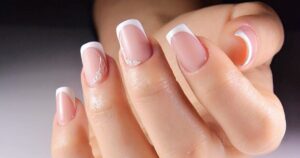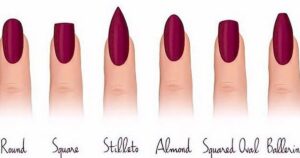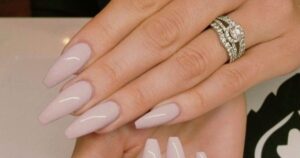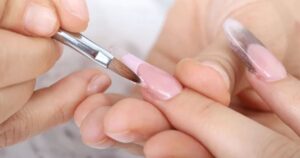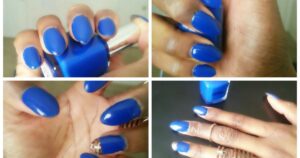Have you ever considered dyeing your hair a different color? As a means of expressing individuality and experimenting with appearance. Nevertheless, for those who follow certain religious beliefs, such as Islam, the question arises: Is dying your hair haram? This article will explore this topic and shed some light on the Islamic perspective of hair dyeing.
Before we delve into the religious aspect, let us address the keyword: haram. In Islam, “haram” refers to actions forbidden or prohibited by Islamic law. One should be aware that the ruling of haram may differ according to various interpretations and schools of thought in Islam. So, when it comes to dyeing hair, it may not be as simple as a simple “yes” or “no.”
Changing one’s hair color to the point of deception or artificiality is Islam’s main problem with hair dyeing. Muhammad (peace be upon him) is said to “Change gray hair but avoid black.” From this statement, some scholars argue that dyeing hair with natural colors to hide signs of aging or enhance one’s beauty is permissible, as long as it does not involve black hair dye.
Hair dyeing is haram for some scholars who see it as changing Allah’s creation. So, let us explore this complex topic and the diverse perspectives among Muslims regarding hair dyeing.
What Does Islam Say About Hair Dyeing
There is no clear-cut answer to whether is dying your hair haram in Islam. Islamic scholars and jurists have different opinions and interpretations based on the Quran, the Sunnah, and the principles of fiqh (Islamic jurisprudence). Most scholars agree on some general rules and conditions for hair dyeing derived from Islam’s authentic sources.

The Evidence from the Quran
The Quran does not straight address the issue of hair dyeing. Some verses can be used to derive some rulings on this matter. For example, Allah says in Surah An-Nahl:
Furthermore, whatever you have of favor – it is from Allah. Then when adversity touches you, to Him, you cry for help. (16:53)
This verse implies that everything we have, including our hair color, is a blessing from Allah, and we should be grateful for it. Hence, some scholars think changing hair color is ungrateful and unhappy with Allah’s creation.
They also cite the following verse from Surah Ar-Rum:
Among His signs are the creation of the heavens and the earth and the diversity of your languages and colors. For those with knowledge, those are signs. (30:22)
This verse indicates that Allah has created diversity and variety in His creation, including our languages and colors. Thus, some scholars suggest that changing our natural color alters Allah’s creation and goes against His wisdom.
Yet, other scholars argue that these verses do not prohibit hair dyeing per se but warn against excessive or harmful changes that may affect one’s health or identity. They also cite other verses that allow Muslims to beautify themselves and enjoy the lawful things that Allah has provided for them. For example, Allah says in Surah Al-A’raf:
O children of Adam, take adornment at every masjid, and eat and drink, but be not excessive. Indeed, He likes not those who commit excess. (7:31)
This verse implies that Muslims can use lawful things like clothes, jewelry, perfume, etc., without excess or waste. Thus, some scholars suggest that hair dyeing is a form of adornment that is permissible as long as it does not involve any harm or extravagance.
The Evidence from the Sunnah
In Islamic law, the Sunnah comes second after the Quran. It refers to what the Prophet (peace be upon him) said, did, and approved in the authentic hadiths. The Sunnah provides more details and clarifications on many issues not explicitly mentioned in the Quran.
Hair dyeing, several hadiths address this issue straight or indirectly. Some of them are:
- Abu Huraira reported: The Messenger of Allah (peace be upon him) said: “The Jews and Christians do not dye their hair; so act differently from them.” (Bukhari 3462)
- Ibn Abbas reported: The Messenger of Allah (peace be upon him) said: “At the end of time, there will be people who will dye their hair black like the crops of pigeons; they will not even smell the fragrance of Paradise.” (Abu Dawud 4212)
- Anas bin Malik reported: The Messenger of Allah (peace be upon him) did not dye his hair, but Abu Bakr dyed his hair with henna and katam (a plant used for dyeing), and Umar dyed his hair with henna only.” (Muslim 5476)
- Jabir bin Abdullah reported: that Abu Quhafa (the father of Abu Bakr) was brought on the day of the conquest of Mecca, and his head and beard were white like thaghamah (a plant with white flowers). The Messenger of Allah (peace be upon him) said: “Change this with something, but avoid black.” (Muslim 5475)
These hadiths show that the Prophet (peace be upon him) allowed his companions to dye their hair, and he dyed his beard with henna. He also warned against dyeing the hair black, as it is a form of deception and imitation of the disbelievers. He also encouraged his companions to dye their hair with natural colors such as henna and katam, benefiting the hair and the skin.
Based on these hadiths, most scholars agree that hair dyeing is permissible in Islam, with some conditions and limitations. They also derive some rulings and guidelines for hair dyeing from these hadiths, such as:
- Natural colors like henna and katam are preferable as they are Sunnah and healthy.
- One should not dye the hair black, as it is deceptive and imitative of the disbelievers.
- Other colors are permissible if they are not like disbelievers or immoral people.
- Dyeing the hair for beauty or grey hair is permissible without harm or extravagance.
- Dyeing the hair for medical reasons is permissible without harm or extravagance.
How to Dye Hair in a Halal Way
If you decide to dye hair according to Islam, follow some guidelines and precautions to ensure that you do it halal. Have some advice and tips.
- Hair dye should be natural or halal and free of harm or harm. Avoid ingredients such as alcohol, animal products, or toxic chemicals. The label or the seller can provide more information about the components and their sources.
- Avoid using black or any dye that makes hair look black, as Islam prohibits it. Use other colors for hair that suit you. They should not resemble the colors of disbelievers or immoral people.
- Avoid using permanent or semi-permanent dyes that create a barrier on hair and prevent water from reaching it. This may affect ablution (wudu) and prayer (salah), as you must wash your head during wudu. Use temporary or washable dyes that do not create a barrier on hair and can be removed with water.
- Avoid using bleach or any substance that damages hair or changes its texture. Harmful substances may affect health and appearance and alter Allah’s creation. Use lemon juice or chamomile tea to lighten hair naturally.
- Avoid using excessive amounts of dye or changing hair color often. This may damage health and appearance and display extravagance and wastefulness. Use moderate amounts of dye and change hair color sometimes or when needed.

FAQ’s
Is it haram to dye hair during Ramadan?
No, it is not haram to dye hair during Ramadan. , you should avoid using dyes that te a barrier on hair and prevent water from reaching it.
Is it haram to dye hair with henna?
No, it is not haram to dye hair with henna. It is preferable to use henna as it is Sunnah (the way of the Prophet) and has health benefits.
Is it haram for men to dye their hair?
No, it is not haram for men to dye their hair. It is a good thing and recommended for men to dye their hair if they have grey hair.
Conclusion
In this article, we have discussed hair dyeing in Islam and the various opinions among Muslim scholars. We have seen no clear answer to is dying your hair is haram or not in Islam. Follow certain rules and conditions when hair dyeing. They are derived from the Quran, the Sunnah, and the principles of fiqh. Fiqh is Islamic jurisprudence.. We have also seen that the main concern related to dyeing hair is the alteration of one’s natural appearance to the extent that it becomes deceptive or artificial. We have also seen that dyeing hair black is prohibited as it deceives and imitates the disbelievers, other colors are permissible if they are not like disbelievers or immoral people. We have also seen that natural colors like henna and katam are preferable as they are Sunnah and healthy.
It is permissible to dye the hair with other dyes, as long as they do not create a barrier on the hair and prevent water from reaching it. We have also seen that it is permissible to dye the hair for beautification or cover grey hair, as long as it does not involve any harm or extravagance. Do not dye the hair for the wrong reasons or intentions. For example, do not imitate the disbelievers or immoral people. Do not deceive others about age or identity. Do not attract attention or admiration from others. Etc.

